While it’s horrible to think about, parents do at times need to consider what is going to happen if they pass away when their kids are still young. If one has family around then it is perfect, but, as it turns out, some people would prefer to not take care of kids, even family. Worse, sometimes this only becomes clear when it’s much too late.
A woman asked the internet if she was wrong to refuse to take in her late sister’s three children, after being named their guardian. We reached out to her via private message and will update the article when she gets back to us.
Being named the guardian of someone’s children is a big responsibility
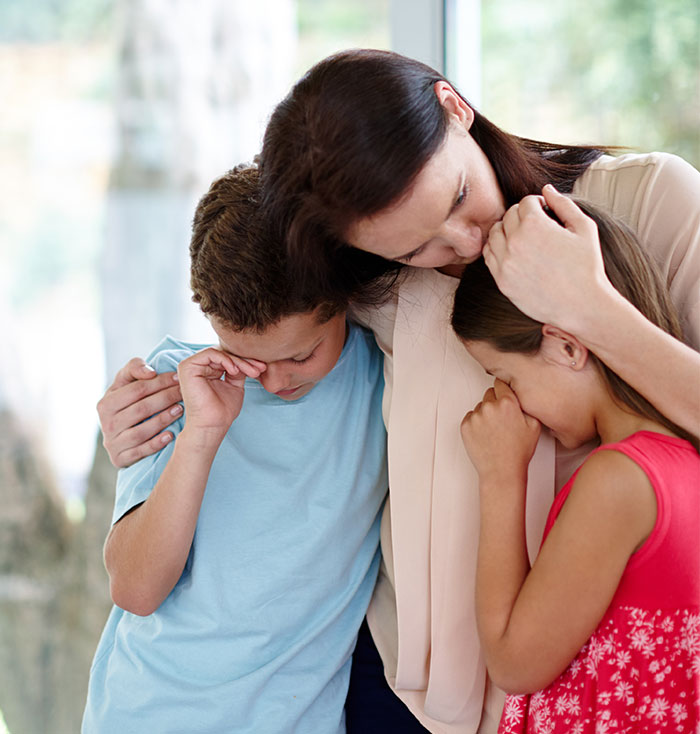
Image credits: YuriArcursPeopleimages / Envato (not the actual photo)
But one woman decided that after her sister passed, she wasn’t up for it
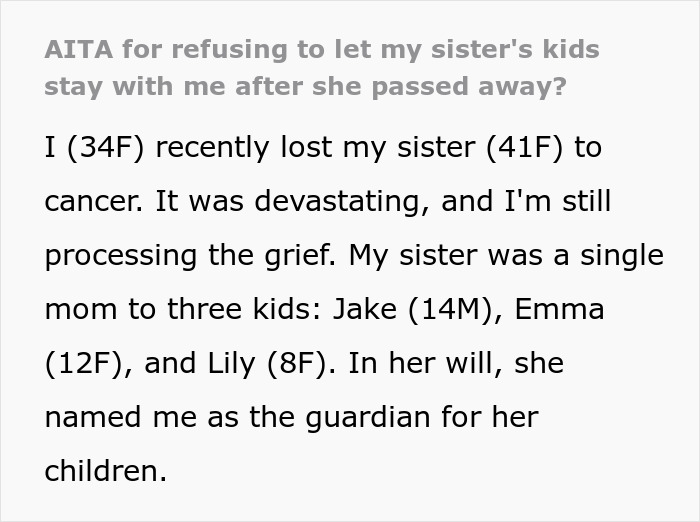
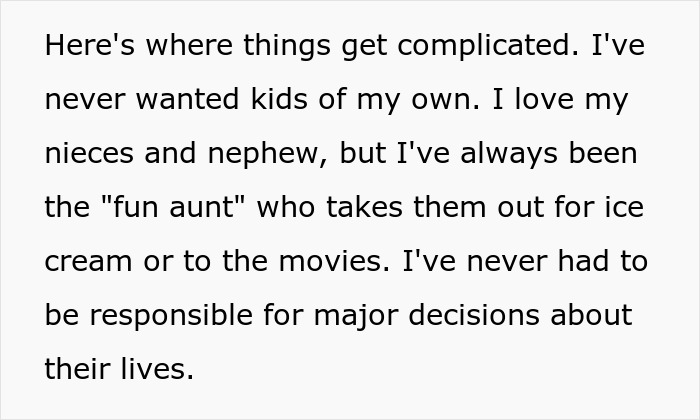
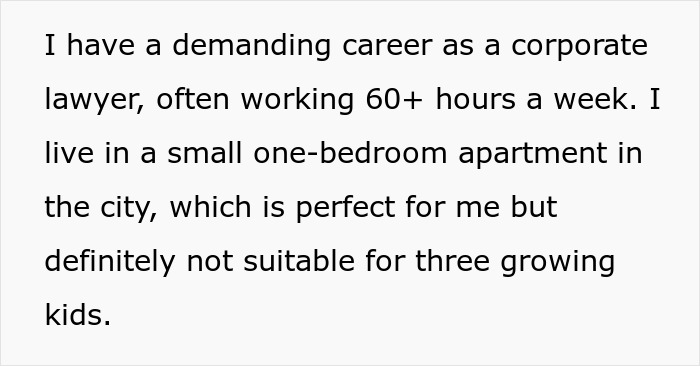
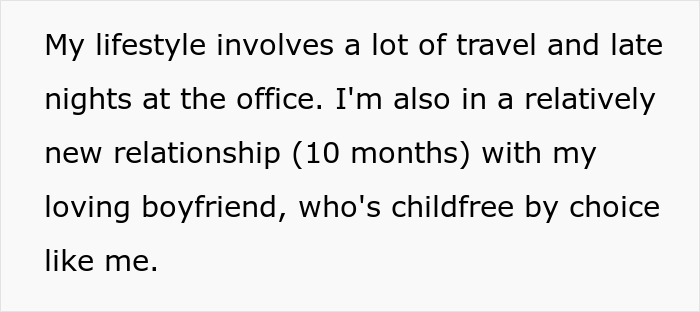

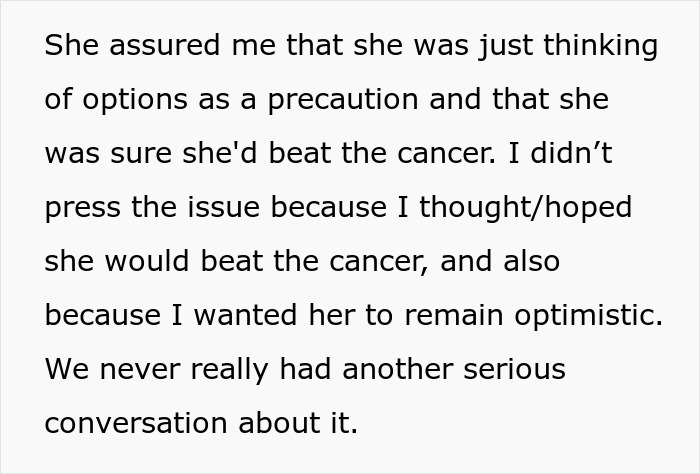
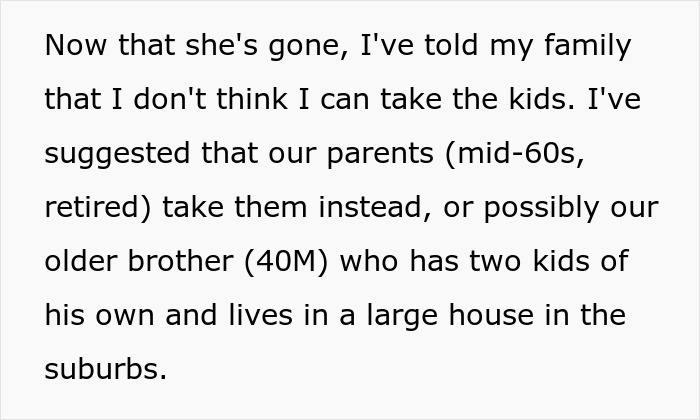

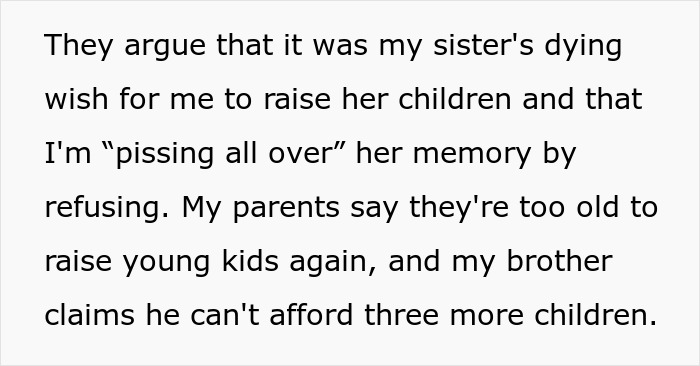

Image credits: Zinkevych_D / Envato (not the actual photo)
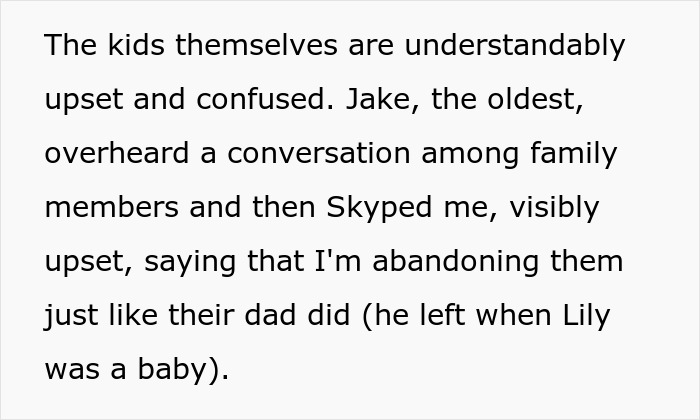
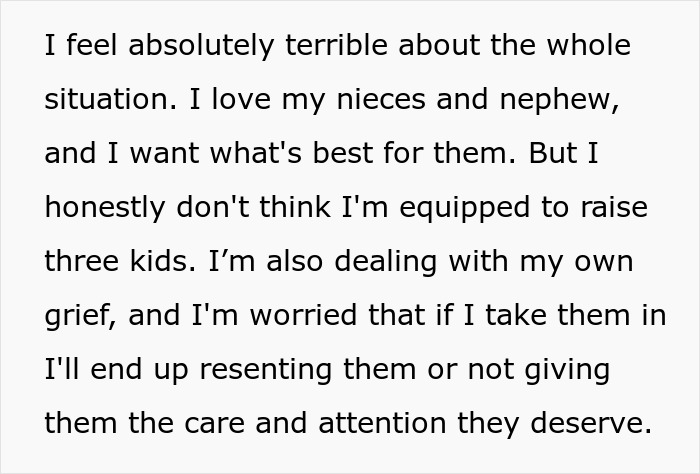
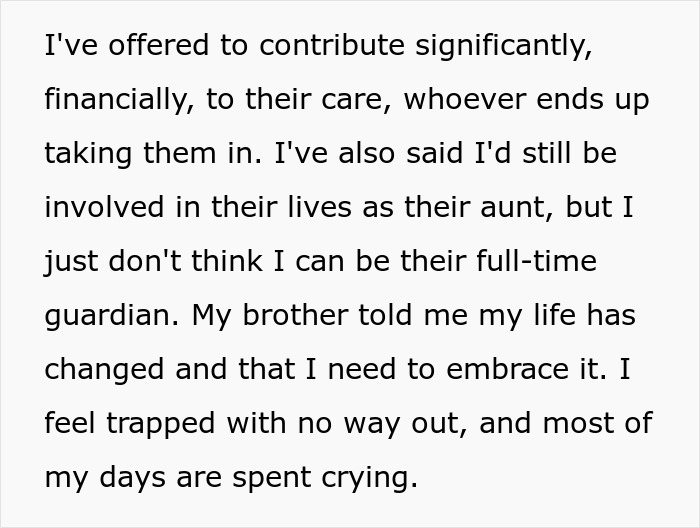
Image credits: InterestingParad0x
It can be hard to figure out exactly where one’s responsibilities towards family end

Image credits: Iakobchuk / Envato (not the actual photo)
When one dies, the ripple effect goes to every part of a family. No experience is as emotionally complex as being named guardian to deceased siblings’ children. On paper, it may look like a straightforward responsibility: step in, take them in, and honor your sibling’s dreams. In reality, it’s rarely that simple. The decision to bring up children that are not yours, especially if you do not think you can look after them, has thick emotional, utilitarian, and moral weight. Both arguments have merit, and an honest recognition of them is the first step towards making a smart choice.
The most persuasive argument for adopting your sister’s children is continuity of family. When a parent dies, the child is already experiencing profound loss and upheaval. To go live with a relative can be to establish some continuity, familiarity, and sense of roots. They are able to remain connected to their parent’s family, traditions, and histories that might otherwise be lost. Choosing to maintain your sibling’s trust might also be the ultimate act of love for them, having their children near, protected, and adored by someone who has shared their history.
There is also the moral position. Most individuals hold the view that family obligation transcends readiness or convenience. Accepting guardianship may be framed as meeting the challenge in adversity, putting the needs of the children ahead of one’s own, and giving them an environment where they sense their worth and appreciation. For some, this sacrifice is accompanied by unexpected benefits: a deeper relationship with the children, personal enrichment, and enjoyment of having accepted the challenge even when it was difficult.
There are still reasons to say “no”

Image credits: Johnstocker / Envato (not the actual photo)
But those good reasons don’t erase the very valid arguments against taking on a responsibility you can’t fulfill. Children require time, emotional capital, and resources. If you’re already at your limits in those areas, committing out of obligation may be sentencing everyone to failure. Traumatized children require constant care, patience, and resources, if you’re short on any of these, their trauma may be intensified. Admitting your limitations isn’t selfish, it can even be more responsible than taking them in and giving them less than they really deserve.
And then there’s the potential for long-term stress. Taking on guardianship when you’re not ready can affect your job, your relationships, your mental well-being, and even your own children if you do have kids already. It has the capability of turning what might otherwise have been a loving, caretaking role into one of resentment and burnout. In extreme cases, it can tear seams in the very family bonds that were meant to be secured by it. No does not necessarily equal don’t care, it might mean that you care enough to know when you’re not the right person to step in for good.
There is sometimes no easy answer

Image credits: BGStock72 / Envato (not the actual photo)
Fortunately, relinquishing guardianship doesn’t have to equal cutting ties with the children. Families can work together and find alternatives, whether it’s another family member better suited for the task, or assisting in other ways, regular visits, cash, emotional support, or simply appearing in their spheres. Guardianship isn’t the sole method for showing love and responsibility.
In the end, the decision is all about heart versus reality. The motivation for adopting your late brother’s children stems from love, obligation, and sacrifice. The reasons against this stem from integrity, reality, and giving the children the care they deserve. Both choices are not simple and both come with future consequences. Most vital is that the choice, to assume guardianship or to stand aside and serve in some other role, is made with clarity, integrity, and above all, for the benefit of the children. If you were curious about what happened next, you’re in luck, as she shared two whole updates below.
Some folks needed more information
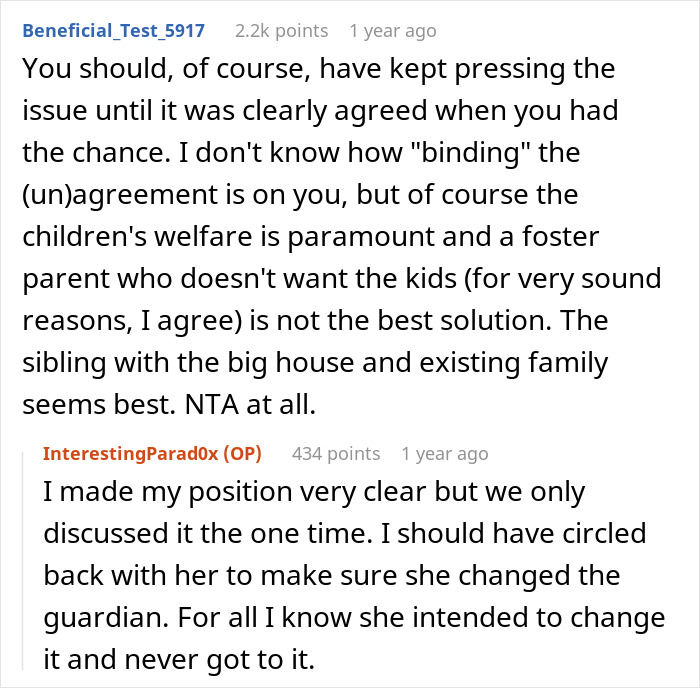
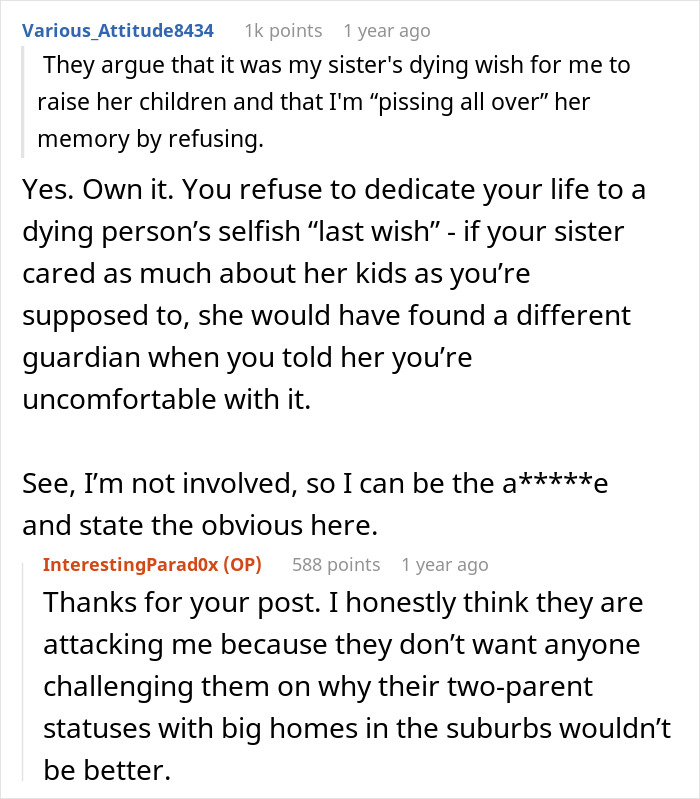
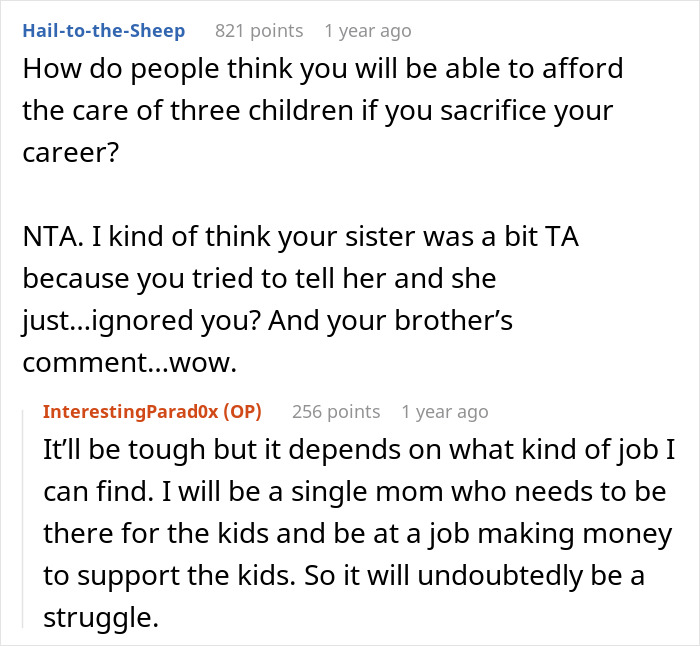

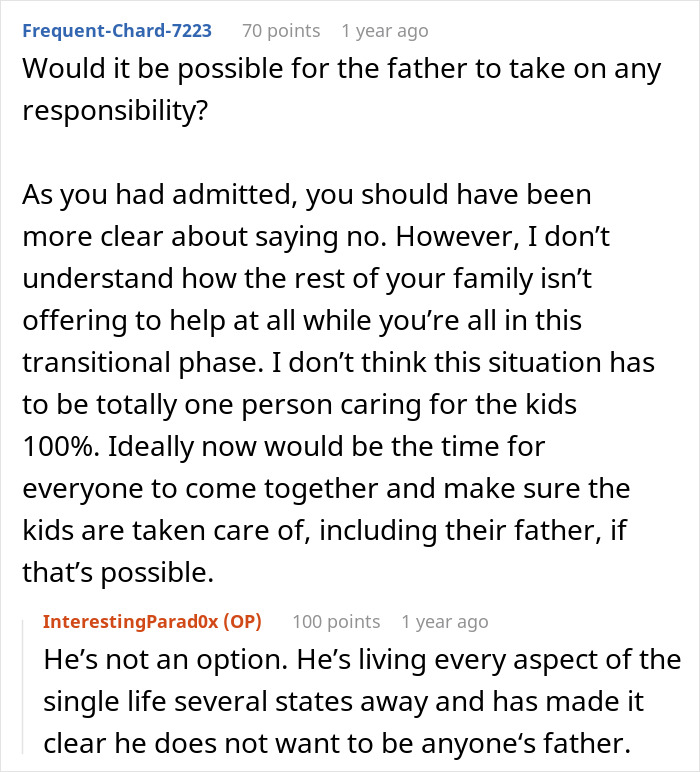

Many saw her side of things

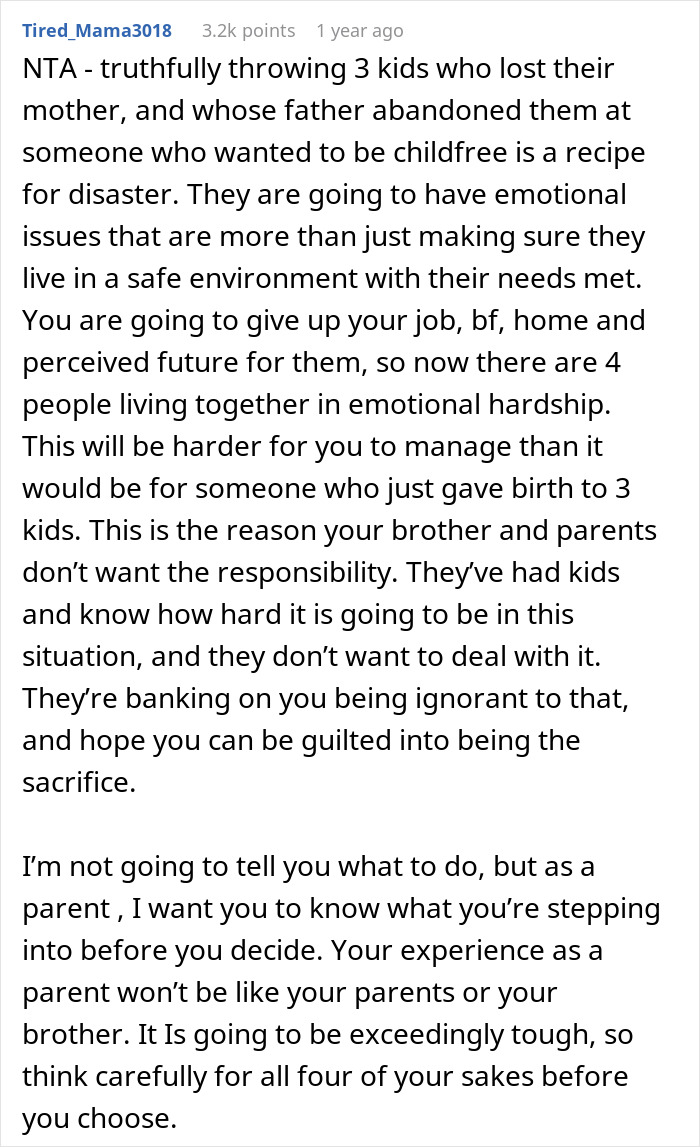

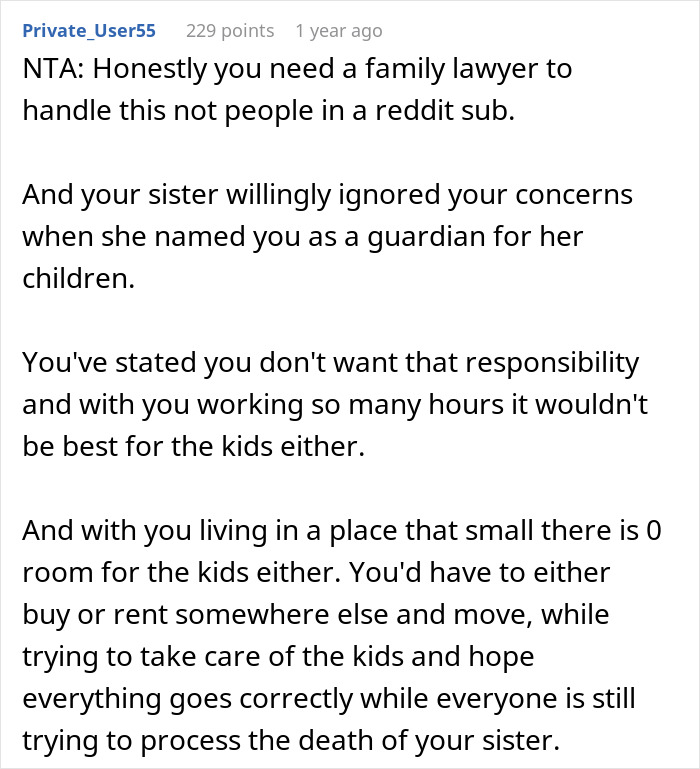
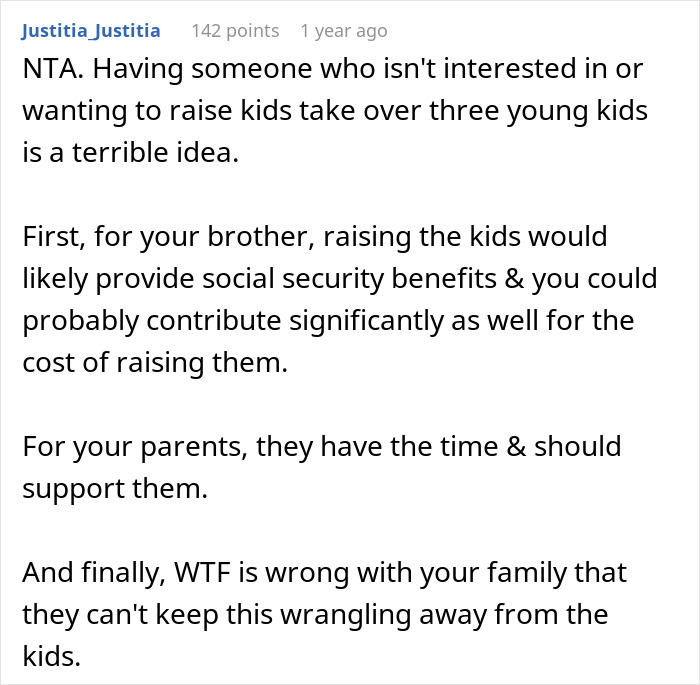
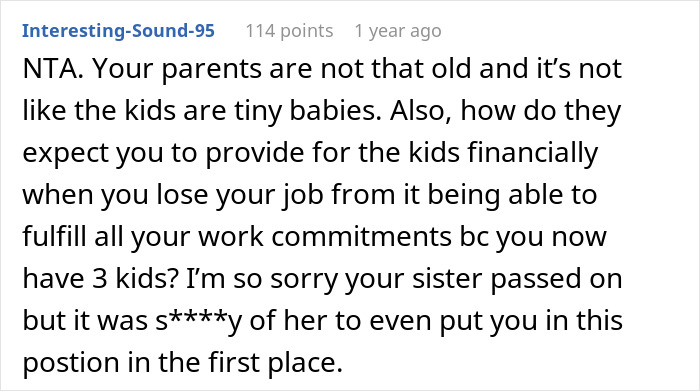


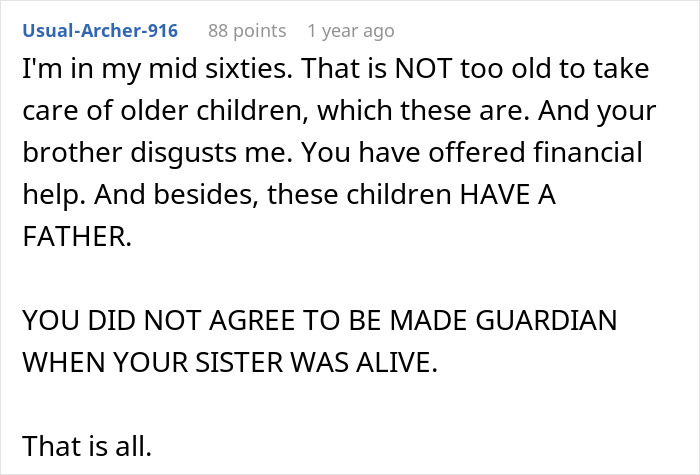

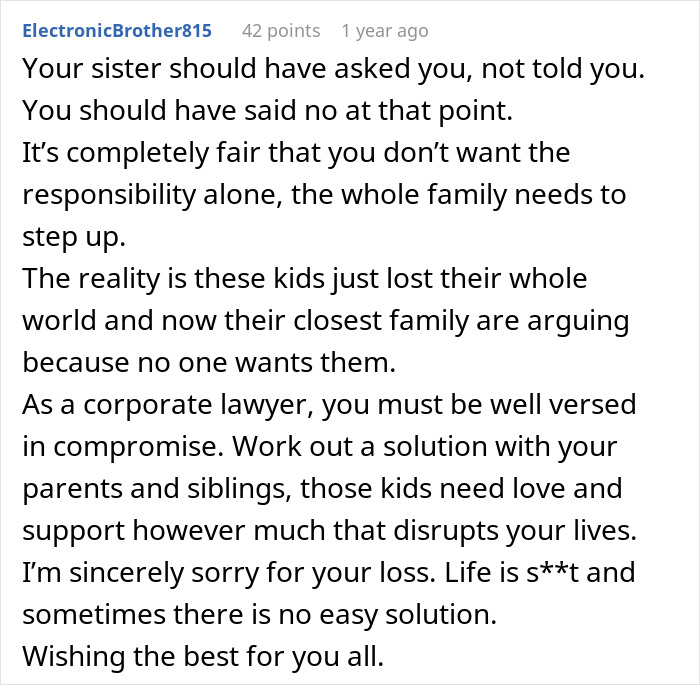
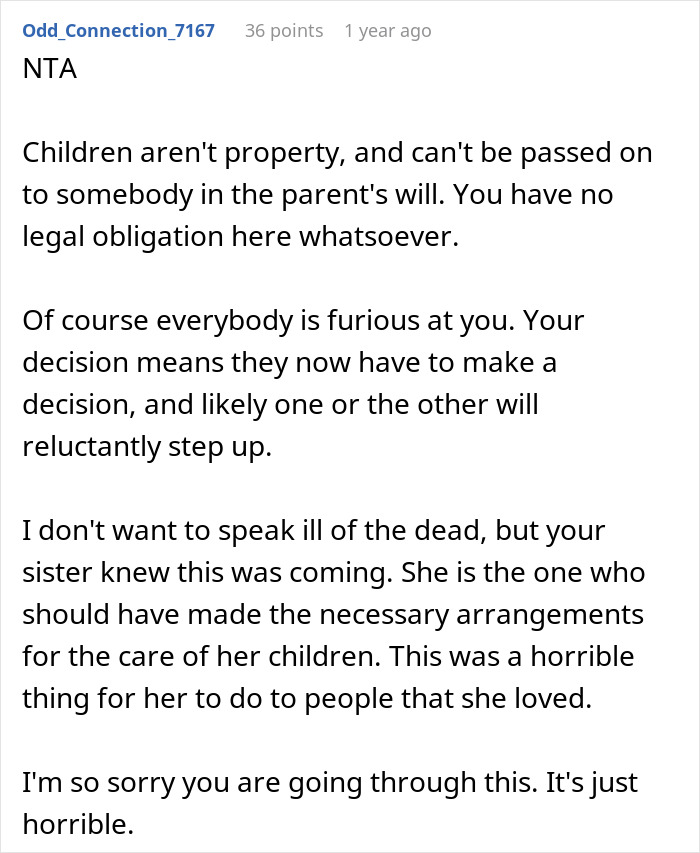
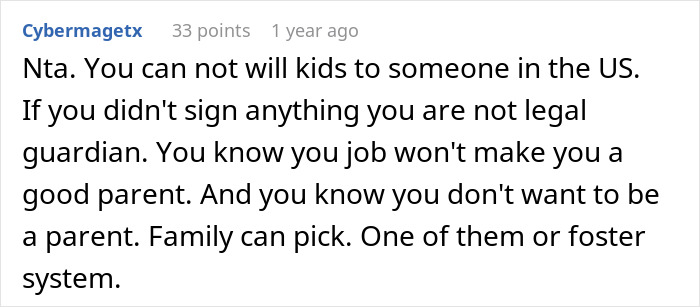


Others thought she should have communicated this earlier
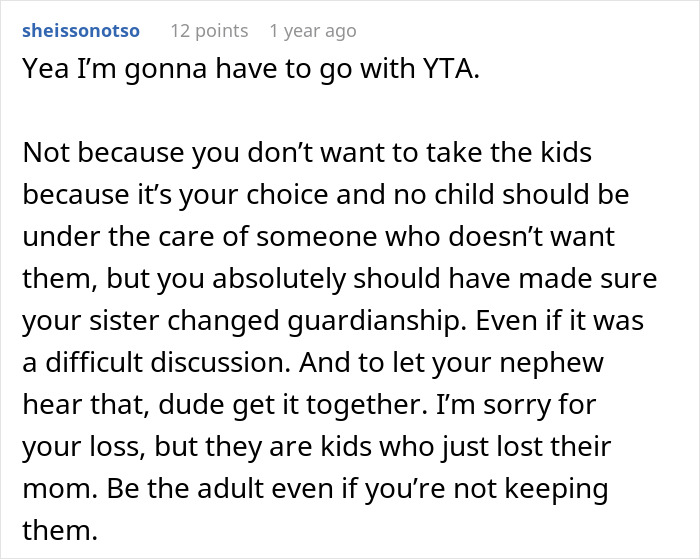
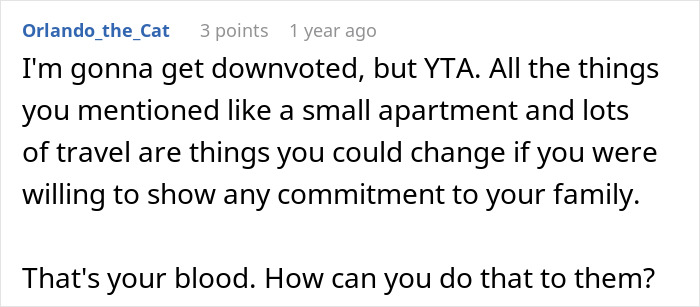
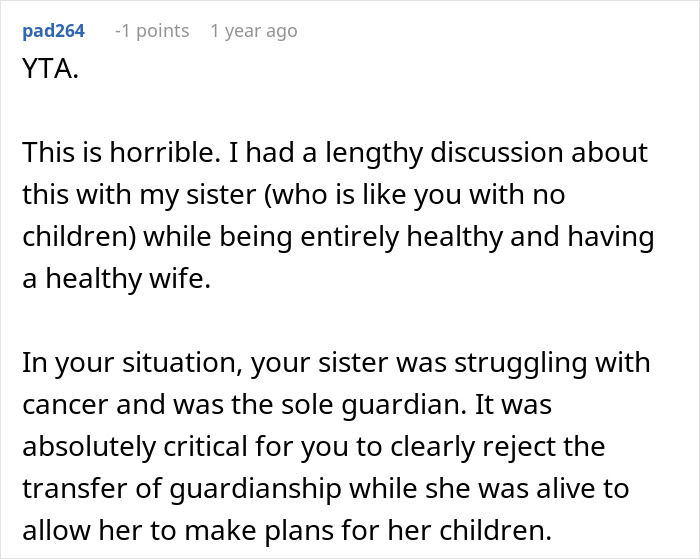

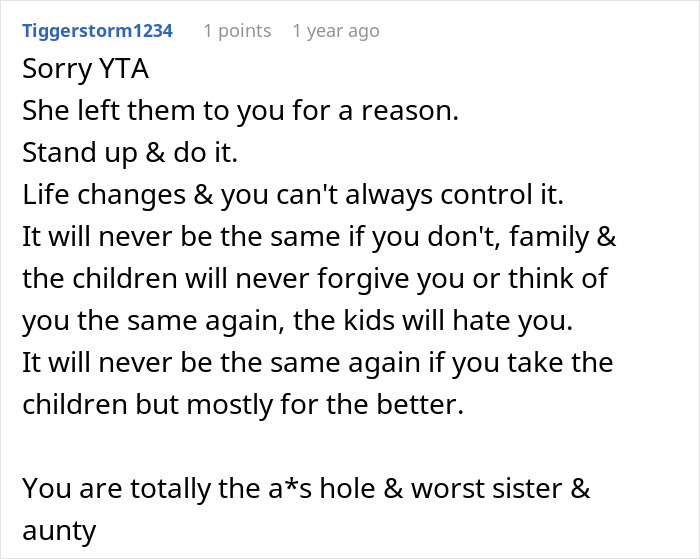

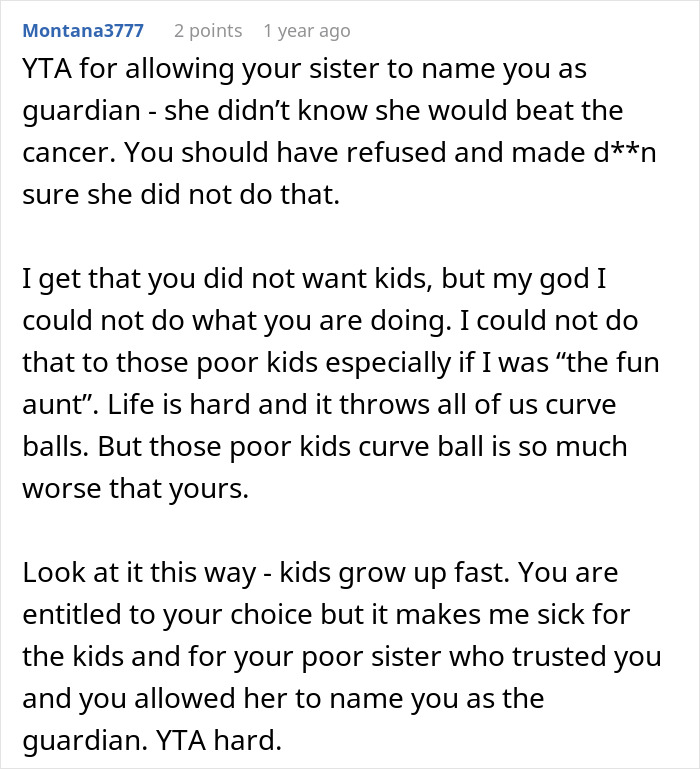





Some readers expressed sympathy for the position the kids were in
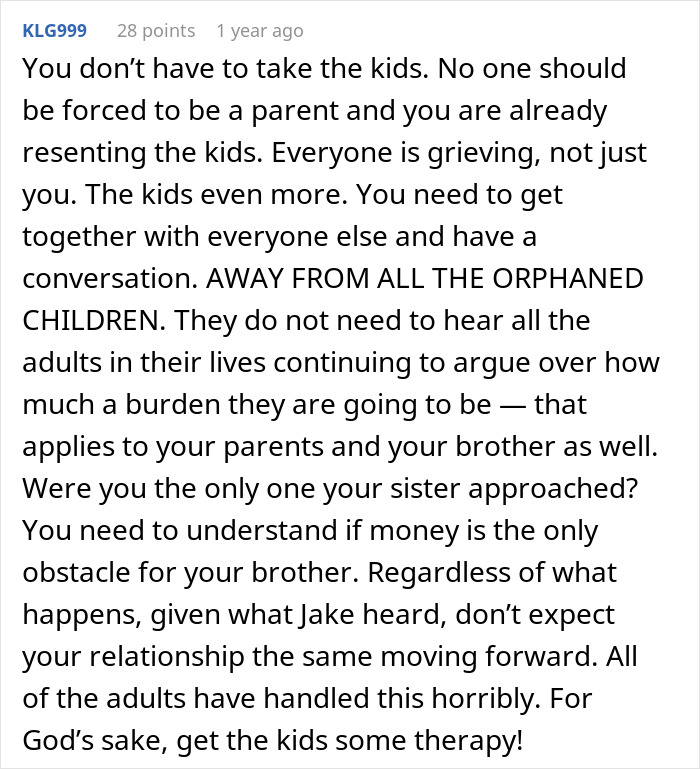

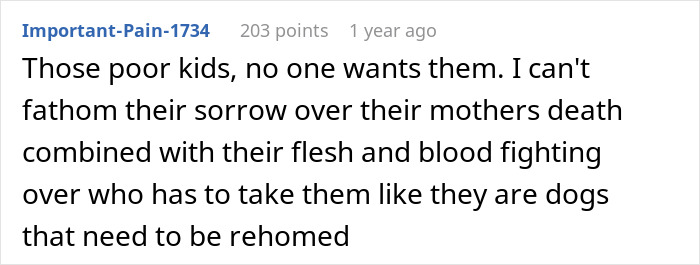
Later she shared an update on what she decided

Image credits: Queenmoonlite35 / Envato (not the actual photo)

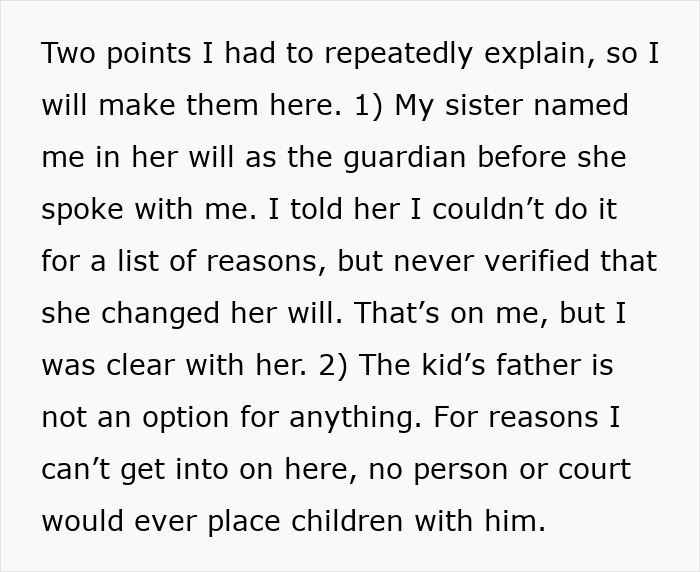

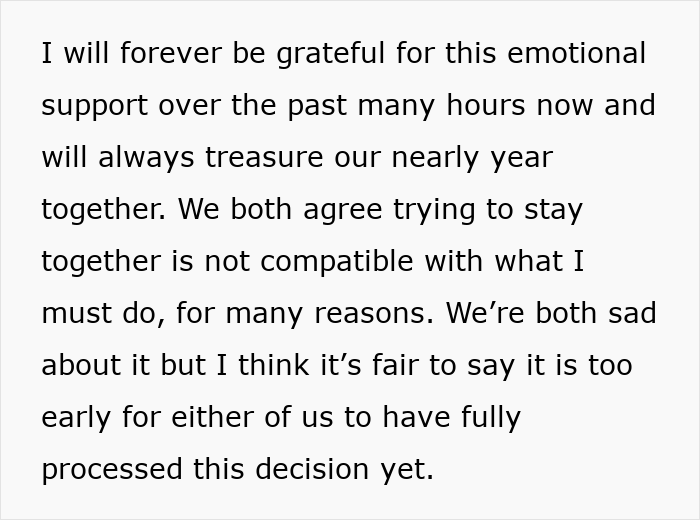
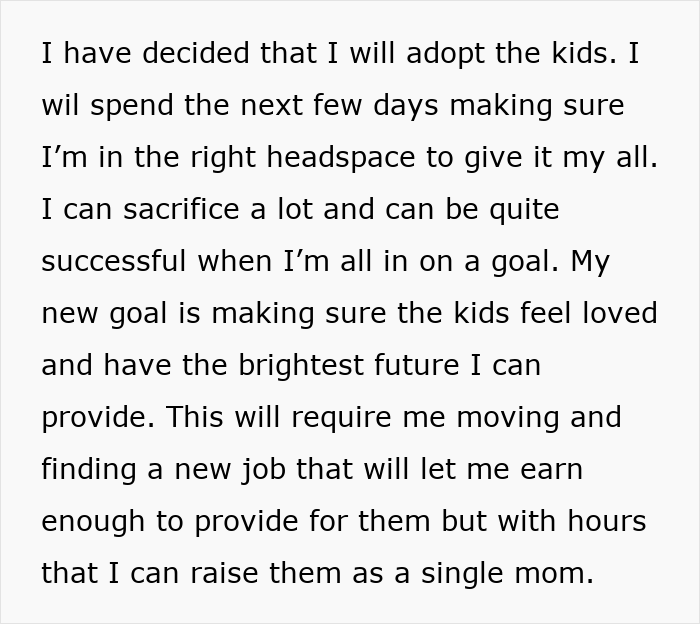
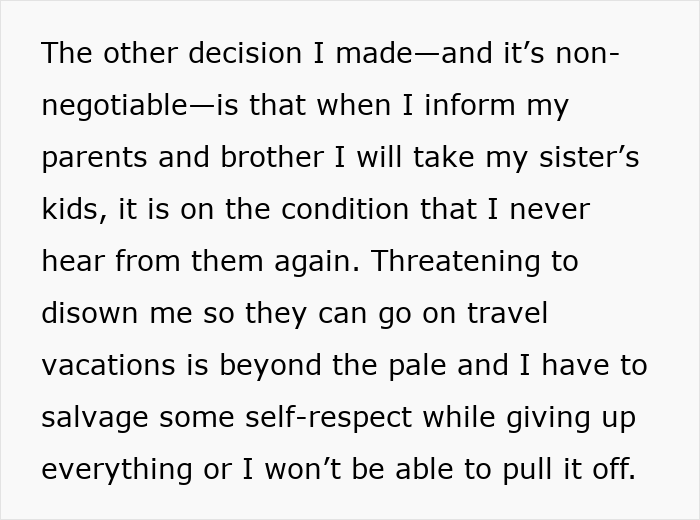

Image credits: gpointstudio / Envato (not the actual photo)
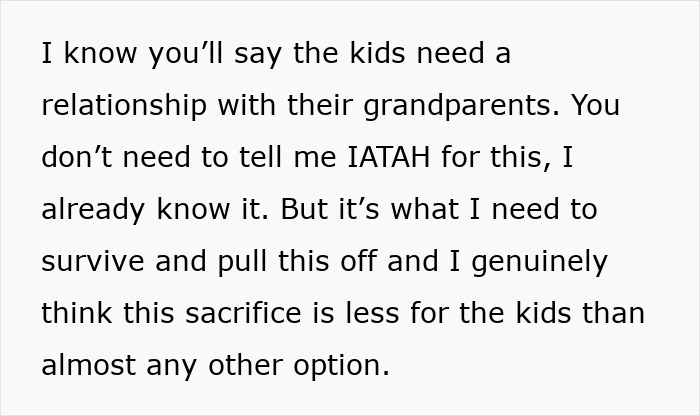
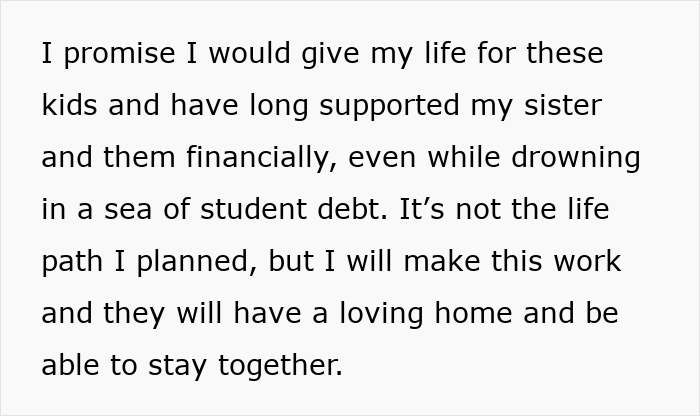
Image credits: InterestingParad0x
People applauded her choices

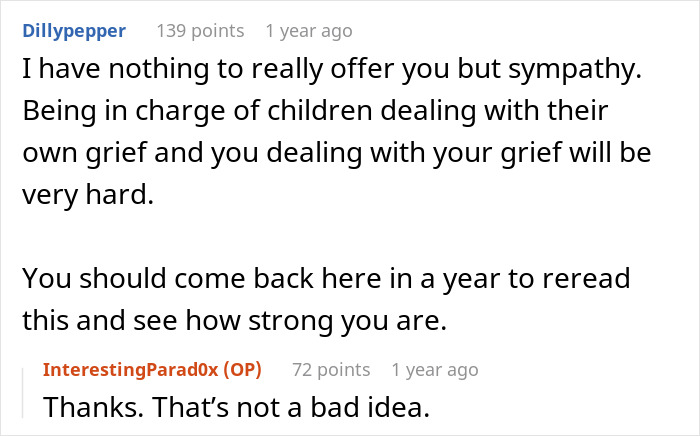

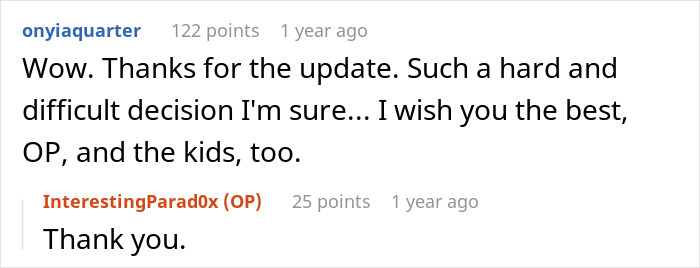
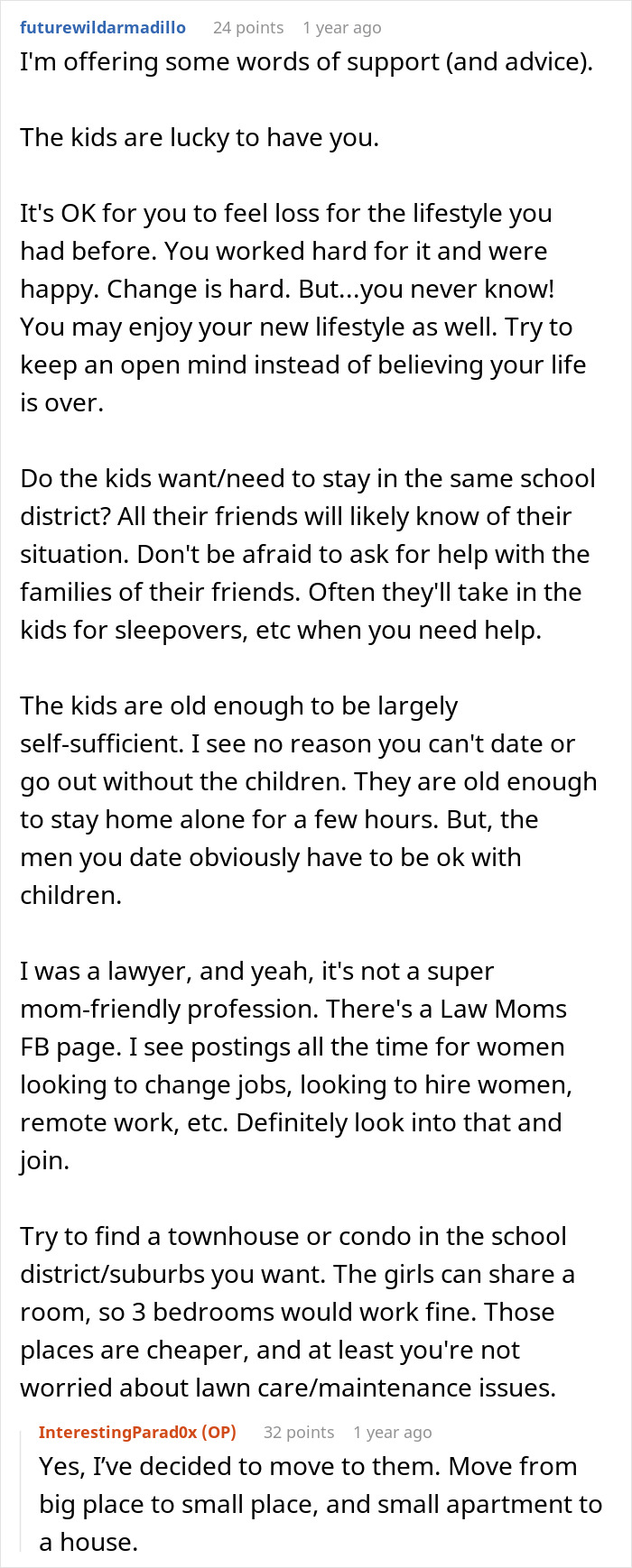
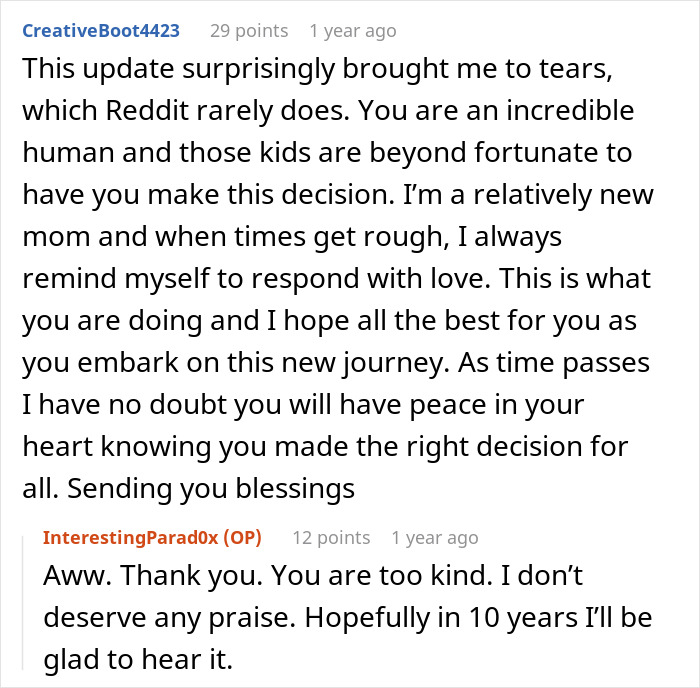
She gave one more update later
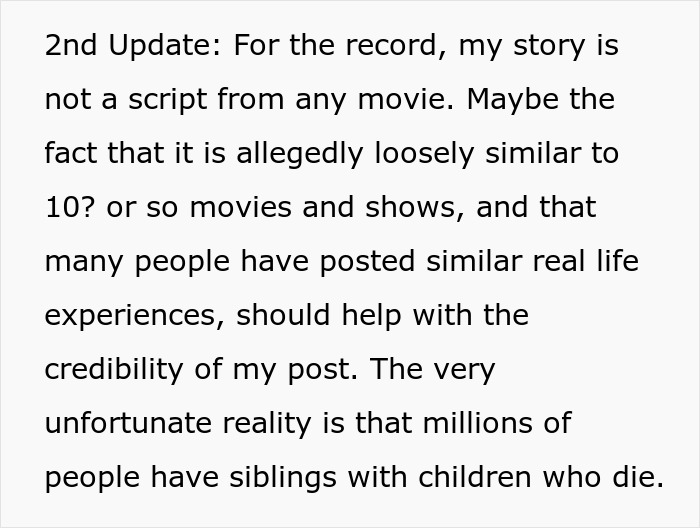


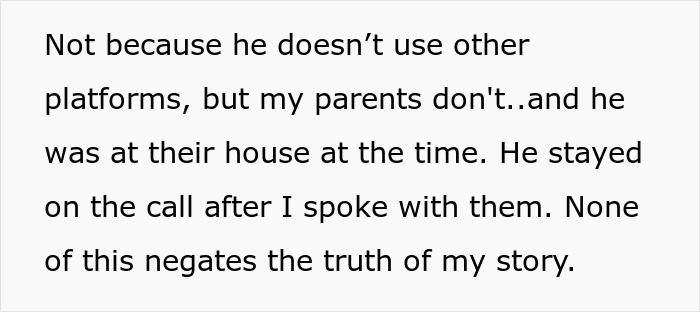
Image credits: InterestingParad0x
 Follow Us
Follow Us





